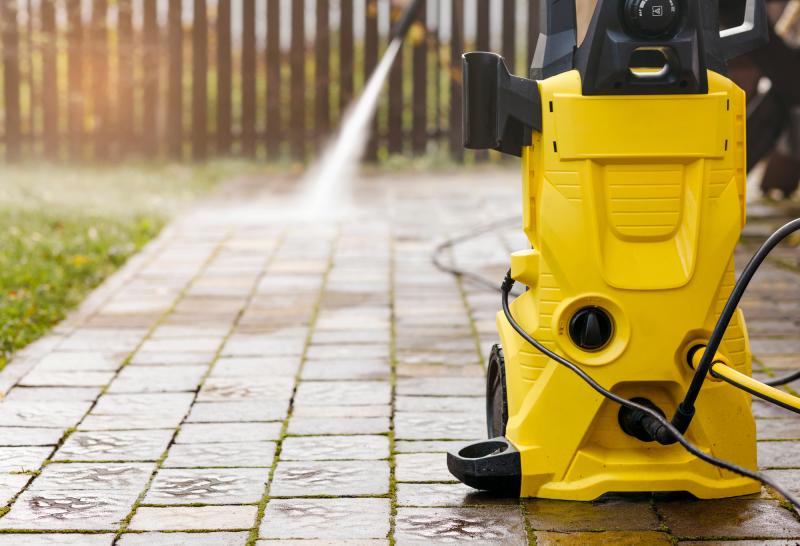How to Extend the Life of Your Cleaning Equipment with Proper Maintenance
Investing in high-quality pressure washing and soft washing equipment is essential for any cleaning business. However, regular maintenance is just as crucial to ensure optimal performance, reduce downtime, and prevent costly repairs. Proper upkeep extends the lifespan of your machines, helping you maximize your return on investment.
In this guide, we'll cover essential maintenance tips to keep your equipment running efficiently and protect your investment.

1. Perform Routine Inspections
Frequent inspections help detect potential issues before they escalate into costly breakdowns. Setting up a weekly maintenance checklist can ensure consistency and prevent overlooked problems.
What to Check During Inspections:
- Hoses and Connections - Look for leaks, cracks, or wear.
- Nozzles and Spray Tips - Ensure they are not clogged or worn out.
- Filters and Screens - Clean regularly to prevent blockages.
- Pressure Washer Pumps - Check for leaks and maintain proper oil levels.
- Electrical Components - Inspect wiring for damage, corrosion, or loose connections.
By addressing minor issues early, you'll avoid unexpected failures that could disrupt your workflow.
2. Clean Equipment After Every Use
Dirt, debris, and chemical residue can accumulate in your equipment, leading to corrosion and reduced performance over time. Cleaning your gear after each use helps prolong its lifespan.
Post-Use Cleaning Routine:
- Flush hoses and spray wands with clean water to remove chemical buildup.
- Wipe down external surfaces to prevent rust and grime accumulation.
- Rinse detergent injectors to avoid clogging.
- Store equipment in a dry, ventilated area to prevent moisture damage.
Regular cleaning and upkeep ensure smooth operation and fewer mechanical failures.
3. Maintain Pressure Washer Pumps & Engines
Your pressure washer's pump and engine are the most critical components of your machine. Without proper care, these parts can suffer from wear and overheating, leading to expensive repairs.
Best Practices for Pump & Engine Maintenance:
- Change Oil Regularly - Follow manufacturer guidelines for oil change intervals.
- Use the Right Fuel & Additives - Prevent fuel-related issues by using high-quality fuel.
- Check Pump Seals & Valves - Replace worn-out seals to prevent pressure loss.
- Winterize Equipment - If storing in cold climates, use antifreeze to protect the pump.
Neglecting pump and engine care can drastically shorten your equipment's lifespan, leading to costly replacements.
4. Replace Worn Parts on Time
Many cleaning equipment components experience natural wear and tear. Replacing worn-out parts proactively prevents performance issues and breakdowns.
Parts to Replace Regularly:
- Spray Tips & Nozzles - Worn-out nozzles reduce pressure and efficiency.
- O-Rings & Seals - Prevent leaks by replacing damaged seals.
- Hoses & Fittings - Cracked or leaking hoses can cause pressure loss.
- Filters - Keep fuel and water filters clean for better engine and pump performance.
Using high-quality replacement parts extends the longevity of your equipment and enhances cleaning efficiency.
5. Store Equipment Properly
How and where you store your pressure washing and soft washing equipment can significantly impact its lifespan. Improper storage can lead to rust, hose damage, and mechanical failure.
Proper Storage Tips:
- Store in a dry, sheltered location to prevent rust and water damage.
- Coil hoses properly to avoid kinks and cracks.
- Use protective covers to shield equipment from dust and debris.
- If storing long-term, run the engine and pump periodically to prevent stagnation.
Investing in proper storage solutions helps you avoid premature equipment failures and replacement costs.
6. Train Your Team on Proper Use & Care
One of the leading causes of equipment damage is improper use by employees. Ensuring your team understands correct operation and maintenance procedures can drastically reduce unnecessary wear.
Essential Training Topics:
- Proper machine operation for different surfaces.
- Routine maintenance procedures and why they matter.
- Correct chemical-to-water ratios to prevent internal corrosion.
- Safety protocols to minimize accidental damage and injuries.
A well-trained team will not only extend the life of your equipment but also improve cleaning efficiency and job quality.
Common Mistakes to Avoid
- Skipping Routine Maintenance - Leads to unexpected breakdowns.
- Ignoring Nozzle Wear - Worn-out nozzles reduce cleaning power and waste water.
- Using the Wrong Cleaning Solution - Can corrode internal components.
- Failing to Winterize Equipment - Causes pump damage in cold climates.
- Improper Equipment Storage - Increases rust and hose deterioration.
Avoiding these common pitfalls will significantly improve your equipment's durability and performance.
Frequently Asked Questions (FAQs)
Q1: How often should I change the oil in my pressure washer? A: Most manufacturers recommend changing the oil every 50 hours of use or every three months for regular use.
Q2: What's the best way to prevent rust on my cleaning equipment? A: Wipe down equipment after each use, store in a dry area, and use protective covers to prevent moisture buildup.
Q3: How do I know when to replace my pressure washer nozzle? A: If you notice uneven spray patterns, reduced pressure, or excessive water use, it's time to replace the nozzle.
Final Thoughts: Protect Your Investment
Proper maintenance is the key to maximizing the lifespan of your pressure washing and soft washing equipment. By following these routine maintenance practices, you’ll ensure consistent performance, minimize costly repairs, and improve efficiency.
Looking for high-quality cleaning equipment, replacement parts, and maintenance solutions? Visit LNI Equipment for top-tier products that keep your business running smoothly.
Upgrade your cleaning equipment today—Shop now at LNI Equipment
